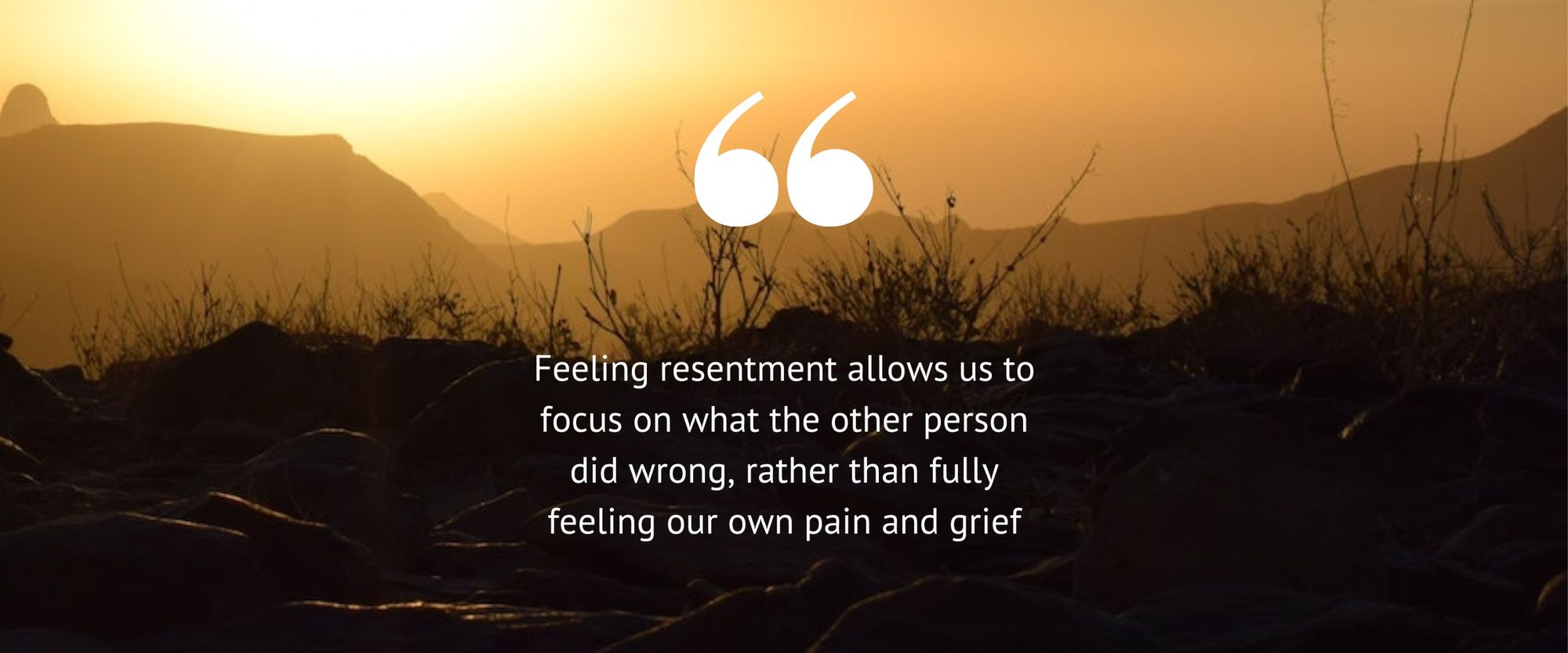Discover the art of forgiveness and how it can benefit your wellbeing
updated on Nov 30, 2022

It may seem natural to not want to let someone off the hook for what they have done, but be warned – these bitter feelings can hurt you too
You may have heard stories about people forgiving others for the most heinous of crimes, things that seem unimaginable to you – betrayal, lies, scandals, and even felonies. You may have wondered how on earth could they do that? Many of us hold grudges from the past, or feel that to let go and forgive may send the message that we condone wrongful behaviour. So, why is it that some people find it easy to forgive, and others seem to struggle?
When comedian Chris McGlade heard from police that his father had been murdered, he forgave his killer in an instant. To help me understand why, Chris told me of his upbringing with a father who had an irreverent sense of humour, and didn’t take life too seriously.
“He was the most outrageous man, with the most outrageous sense of humour, but a massive heart. There was never any malice in him, and he always forgave, and that left an indelible mark on my life.”
Chris says that at the moment the police told him the news, an “irreverence came over me”. At this darkest of moments, he made a joke. When the police looked surprised, his wife said: “Oh, it’s just his way.’’
He reflected: “It was my way, but more importantly it was my family’s way, it was my dad’s way.’’ Chris felt the presence of his father in that moment. He says: “I could see him in my mind’s eye saying ‘Go on, that’s what you do. You laugh, you don’t get angry – protect yourself with a laugh,’ and at that moment, I felt this love. It wasn’t something I had to think about, it was just instinctive.’’
Chris is now touring with a comedy show, Forgiveness, about life growing up with his dad, and his decision to forgive his father’s killer. His story is an extremely unusual case.
Most of us go through life, carrying resentments and grievances from various experiences. It may seem natural to not want to let someone off the hook for what they have done to us, but the problem is that these feelings hurt us, too.
In her book, Forgiveness Made Easy, life coach Barbara J Hunt explains how the word ‘resentment’ comes from the Latin, ‘sentire’ to feel. ‘Re-sent’ literally means, ‘to feel again’. When we hold on to feelings of resentment, we are stuck in a ‘pain loop’, feeling all of the old emotions, again and again, like a wound that never heals. One study published in the journal Aging and Mental Health found that unforgiveness can cause depressive symptoms later in life.
Forgiveness, on the other hand, has a wealth of physical and emotional health benefits, including reducing levels of anxiety, depression, and stress, lowering blood pressure, lowering cholesterol, and improving sleep. First and foremost, forgiveness is for you.
One major stumbling block Barbara J Hunt explains in her book is our ego. In order to protect ourselves, we keep our emotions of hurt hidden under the shell of our ego. Feeling resentment allows us to focus on what the other person did wrong, rather than fully feeling our own pain and grief.

This attitude is the cultural norm. Hunt says: “Think of all the soaps, movies, and literature where resentment is part of the plot, or the saying, ‘Don’t get mad, get even.’ It can feel enticing to be the victim, and hold on to the person’s wrongness.”
This isn’t to negate the fact that we have been hurt, often by another’s mistakes. However, holding on to resentment stops our ability to heal from the hurt. The first thing to realise is that forgiveness is for you, not the other person. It doesn’t mean you have to necessarily let the person back into your life. It simply means you can heal from the emotions that leave you trapped in resentment.
In order to forgive, you may need to process the feelings of hurt that are stopping you from letting go. It is important to honour these emotions, to give them the time and space they deserve, so as not to minimise what happened. Although Chris McGlade did forgive instantly, he also worked with a counsellor, and told his dad’s story through his comedy.
How would you like to make space for your feelings? It could be with a therapist, a journal, or an understanding friend.
One way to start is to spend 10 minutes journaling on the topic of resentment. What resentments are you carrying? Do you hold anger and blame towards people who have hurt you? Follow your train of thought, and write everything down in a stream of consciousness.
Reread your list, and notice what feelings are there. What would you say to this person, if you could have a totally honest conversation? If you didn’t have to censor yourself? Set a timer, and allow another 10 minutes to express yourself. Let yourself be as petty and immature as you like, without judgement.
As you go about your life, notice when feelings of resentment come up. Allow yourself to fully feel them. Express yourself and have a good cry, or a talk with a friend. Notice any habits of trying to distract yourself – with comfort eating, or scrolling through social media, for example. If it feels like too much to process on your own, then find help from a therapist or counsellor.
Mainstream culture may encourage people to hold on to resentment, but seeking literary or film inspiration on the topic of forgiveness can be a powerful antidote. Check out books like The Kite Runner, by Khaled Hosseini, about a man seeking atonement for not intervening in a rape, or The Art of Mending by Elizabeth Berg, about forgiving family members for life-long hurt. Or watch films like Dead Man Walking, the story of a nun who became a spiritual counsellor to a man on death row, or A Thousand Acres, a film depicting sibling hatred, forgiveness, and love.
Other people’s stories can be a cathartic way to explore your own hurt. Many audience members at Chris McGlade’s show have been inspired to let go of their own grudges.
Then, when you’re ready, try journaling on the topic of your best life. How would it be without resentment, without any trace of anger? Do it not for the person who hurt you, but for those you love. As Chris says: “I’ve got three grandchildren and a daughter, and when you’ve got other people who love you, and care about you, you have a responsibility. You have a duty of care to those people, to be the most peaceful and loving person that you can.’’
This doesn’t mean putting on a brave face, and burying the feelings, but taking the time and attention your feelings truly deserve to authentically let go.

